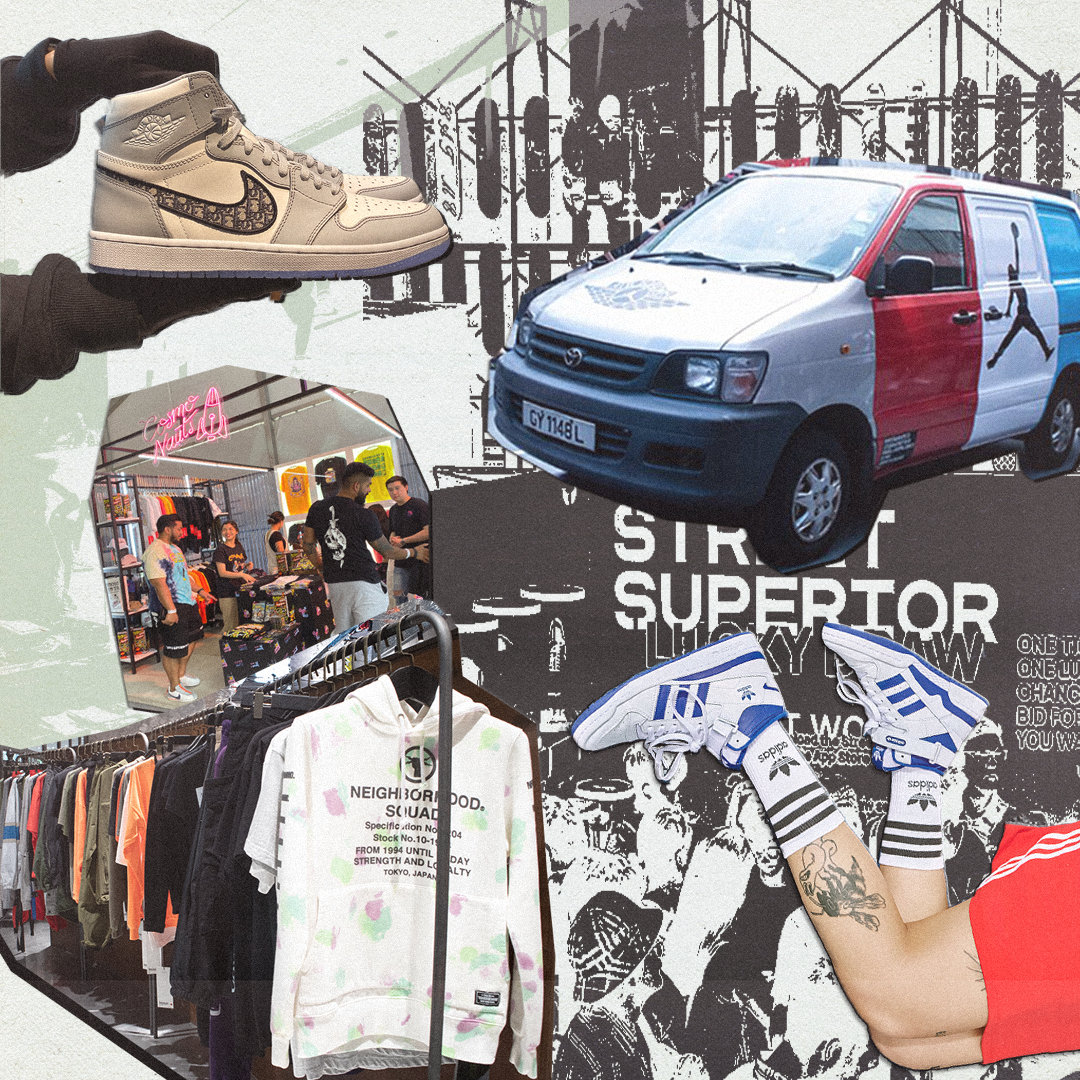Sign up for trending news and first dibs
A guide to Japanese streetwear brands: Bape, Wtaps, Undercover, Fragment Design and more
A guide to Japanese streetwear brands: Bape, Wtaps, Undercover, Fragment Design and more
In an era where fashion has become accessible, Japan has emerged as one of the hot spots for style inspiration – especially in Harajuku, where Japanese streetwear brands reign supreme.
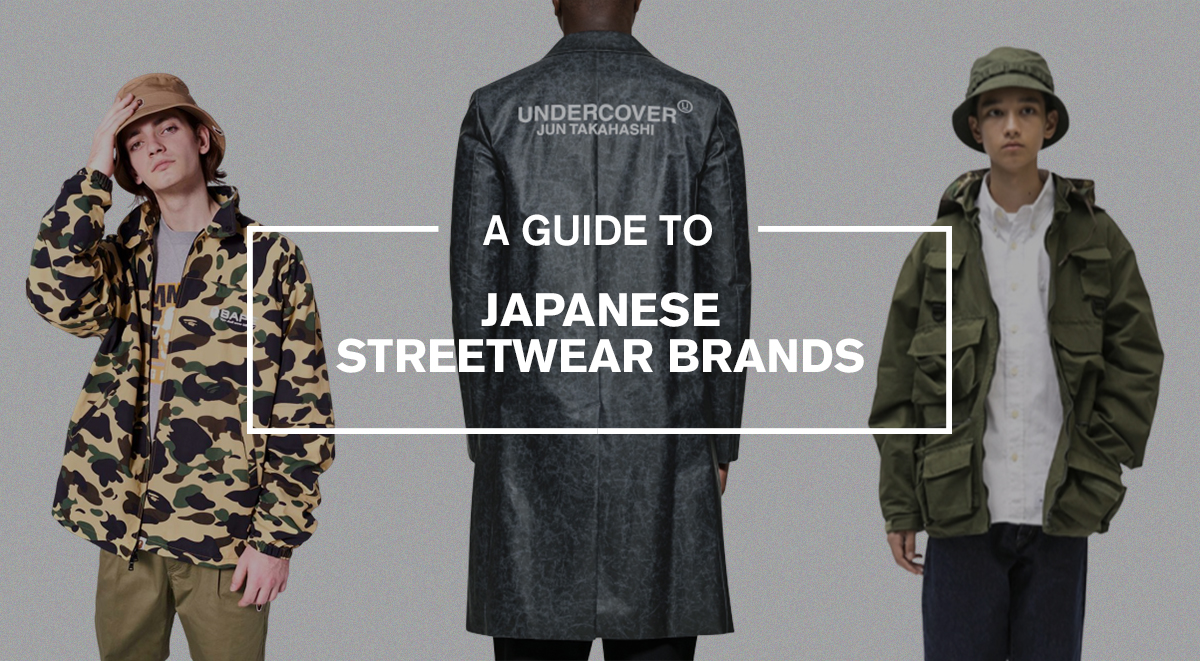
Here, we zoom in on some of Japan’s biggest streetwear names that have gone on to capture the world’s attention.
Streetwear goes a long way worldwide, even in Japan. But it’s the distinct individuality that comes from repackaging western influences that has pushed Japan’s streetwear brands into a category of their own. There’s a mystical allure to the streets of Harajuku and Japan’s fashion landscape that leaves outsiders intrigued and keen to dive in deeper.
In the 2000s, burgeoning creatives from the west like Pharrell and Kanye West caught on. The interest in Japan’s style of fashion and the Japanese streetwear brands driving the hype very much blew up. Soon, many musicians, street artists and designers were making the pilgrimage to Tokyo to experience the magic for themselves.
Before long, high-profile “east meets west” collaborations began to emerge. The world, as we know it, began to discover the pioneers of this era – from the likes of Nigo, Hiroshi Fujiwara, and Jun Takahashi, to Rei Kawakubo.
Now in 2020, the mysteries of the divinely fashionable Japanese may have been lifted. But if you’re just getting started in the scene, here are some of the best Japanese streetwear brands to keep on your radar. Check out the list below.
A Bathing Ape (Bape)
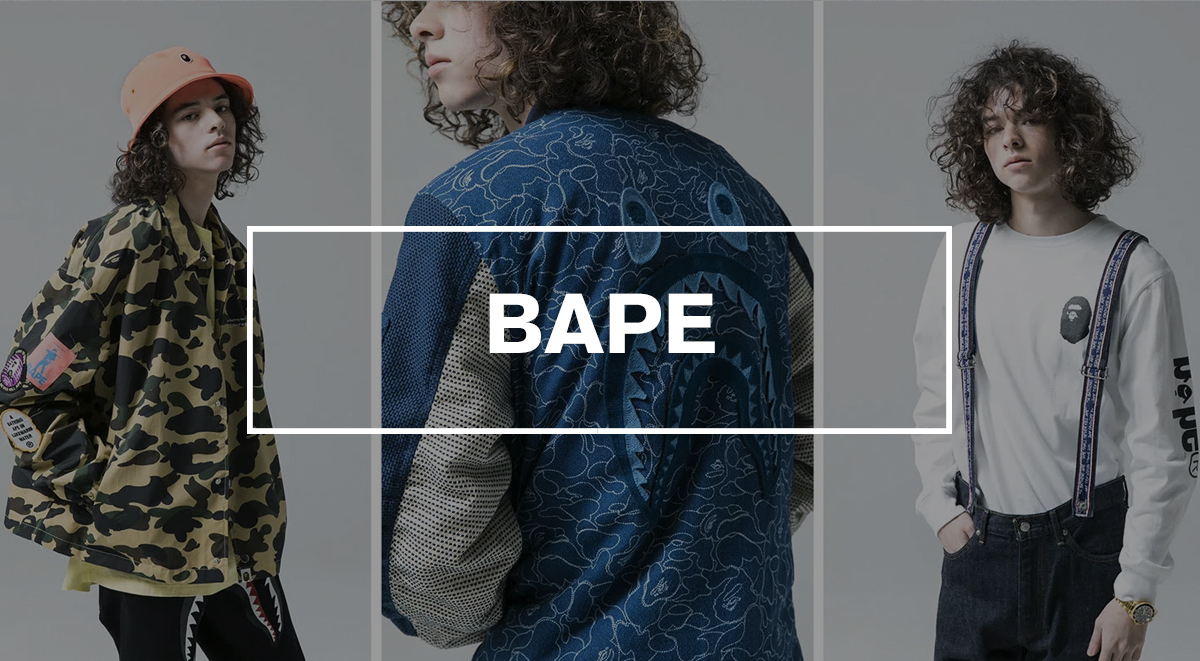
Founded by Nigo, Bape became one of the first few Japanese streetwear brands to gain prominence overseas. The brand is famous for its camo print apparel, shark hoodies and t-shirts emblazoned with the signature Ape head. Just like Supreme, Bape has grown into more than just a clothing line. It’s a lifestyle – one that has seen fans buy anything from kitchenware and toiletries to face masks; basically any item with its iconic imprint.
Shop now: End Launches | ASOS | Farfetch | StockX
Comme Des Garçons (CDG)
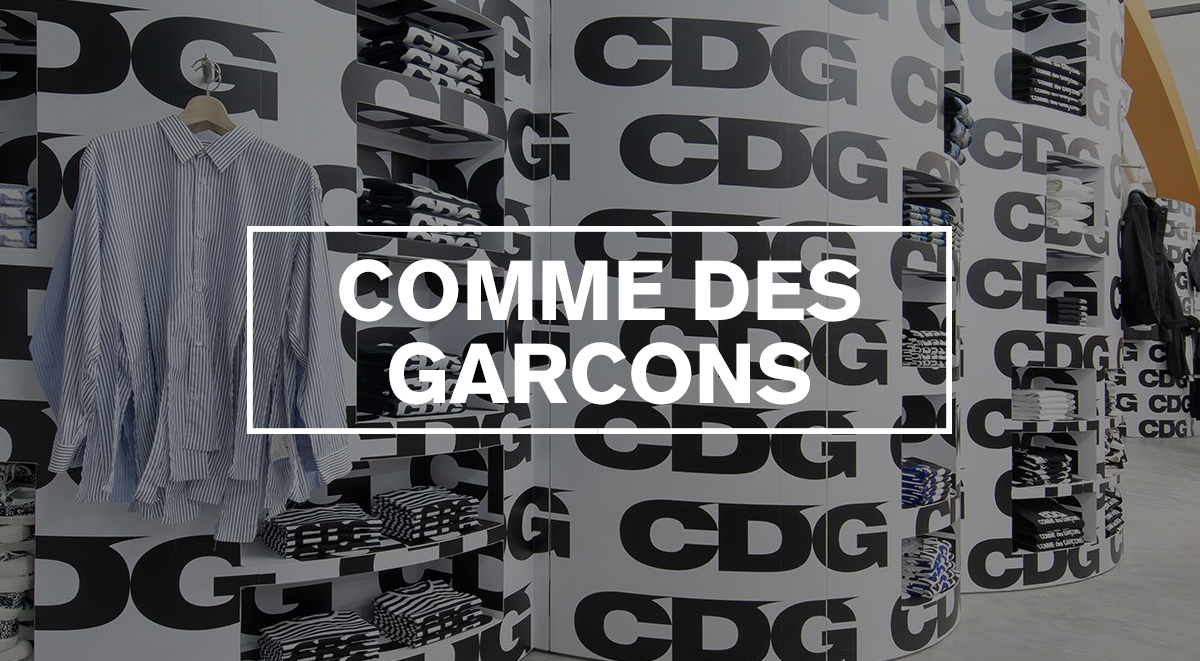
The ideals that define Comme Des Garçons as a whole may not typically categorize this heavyweight label as streetwear. The anti-fashion framework that exists in the output of genius designer Rei Kawakubo is, after all, lauded for its imaginative construction – almost works of art in itself. But while the mainline carries artistic creations that may not suit everyone’s tastes, it forms the basis of the street-ready offerings from its various other lines that have captured the world of streetwear. If you’re looking to dip your toes in Rei Kawakubo’s massive universe, check out these CDG diffusion lines – Shirt, Play, Wallet, and Black.
Shop now: End Launches | Matchesfashion | YOOX | Farfetch
Fragment Design

The terms used to describe Hiroshi Fujiwara – among them, the godfather of Japanese streetwear, tastemaker and trendsetter – clearly show the legacy of the man who is the undisputed king of collaborations. He’s had a hand in launching many iconic labels. But Fragment Design presents the highest level of authority in which the legendary designer operates. The presence of Fragment Design’s signature lightning bolt logo is all it takes to cause a flurry of interest. And the coveted stamp has featured in collaborations with an endless list of recognized brands that include Nike, Stussy, Starbucks, Visvim and Louis Vuitton, among others.
Shop now: StockX
The Conveni

Another one of Hiroshi Fujiwara’s creations, The Conveni presents an interesting concept of selling streetwear and lifestyle offerings in a convenience store setting. Call it a friendly neighborhood streetwear store if you like but the unique concept and accompanying products make it one of the Japanese streetwear brands to keep an eye out for. Think streetwear staples like hoodies and tees, AA batteries, and grocery bags simply branded with “The Conveni” – truly the kind of merchandise worth copping.
Wtaps
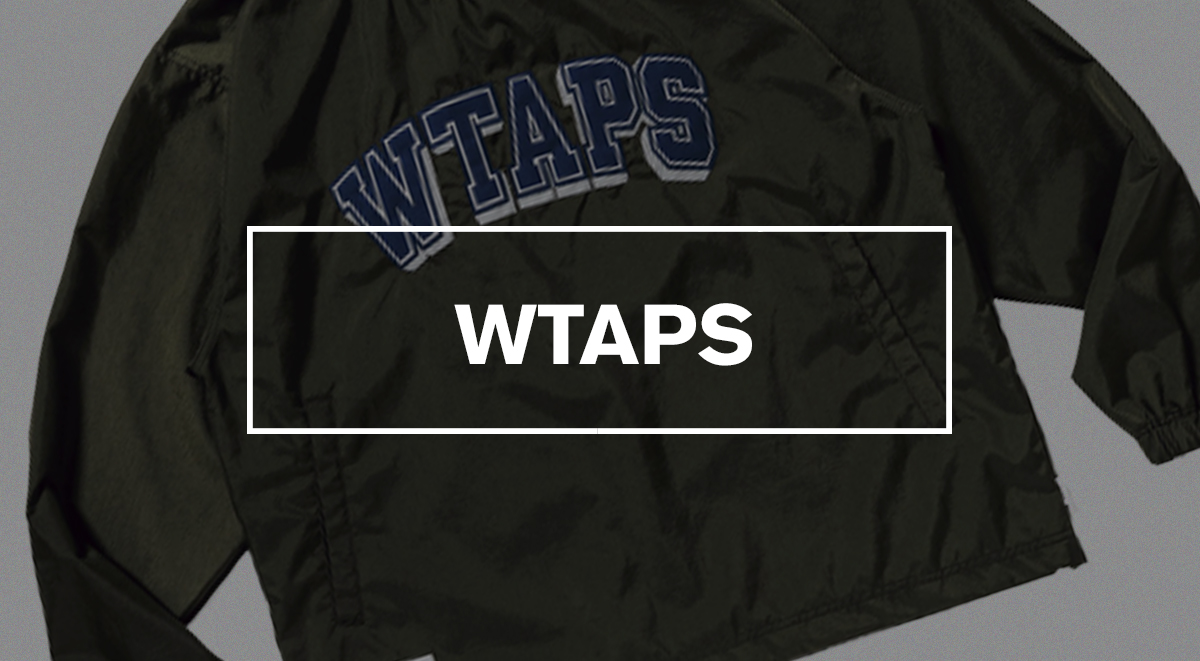
The style of Wtaps’ clothing is telling not just from its garments, but also from its name. Fans of first-person shooter games will recognize the inspiration behind the brand’s name – which is pronounced “double taps”. Founded by Tetsu Nishiyama, Wtaps is a manifestation of the designer’s love affair with military wear. The brand has gone on to establish itself as a mainstay in the world of streetwear, with mighty collaborations including Supreme and Carhartt WIP (another brand heavily influenced by workwear and military wear).
Shop now: End Launches | YOOX | StockX | Farfetch
Visvim
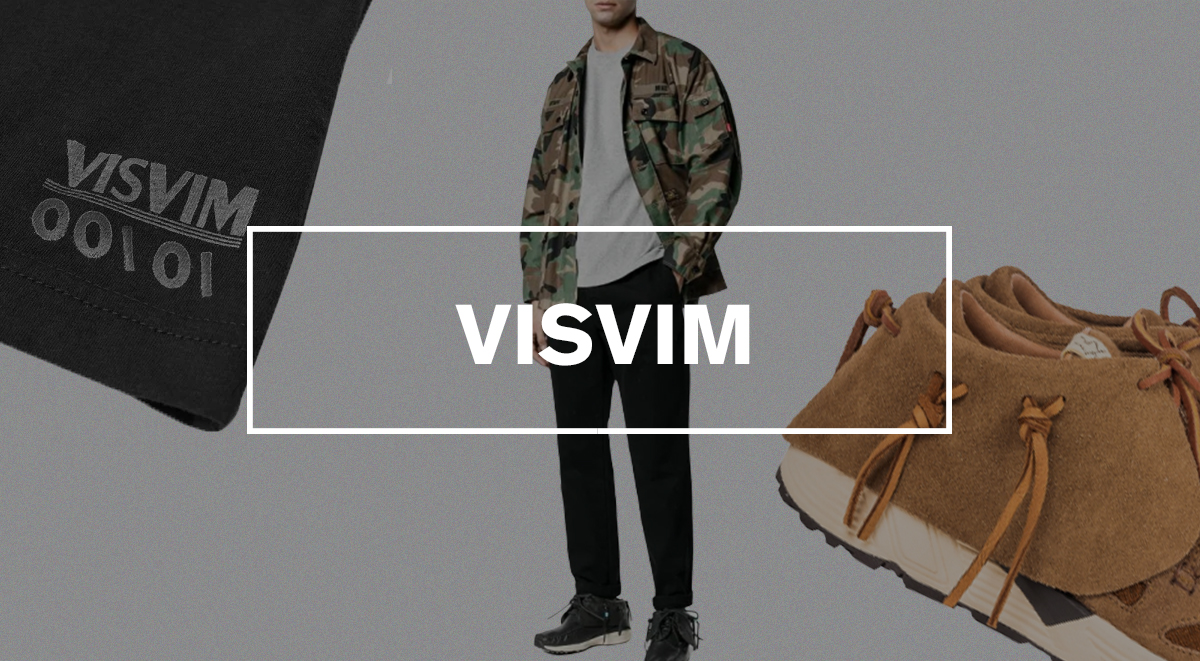
Behind Japan’s intriguing fashion culture is its ability to riff off western influences and create something that’s unique to them. Visvim embodies this by blending Native American styles with Japanese craftsmanship. Following the success of its cult sneaker, the Visvim FBT – a silhouette inspired by Native American moccasins – the brand expanded into ready-to-wear clothing. Brand founder Hiroki Nakamura describes his desire to create “future vintage” products that will be appreciated for a long time to come, and that’s not difficult to see as Visvim prides itself in its quality construction. The label – which counts John Mayer among its diehard fans – is definitely for those with a particular taste.
Shop now: End Launches | YOOX | Farfetch
Human Made
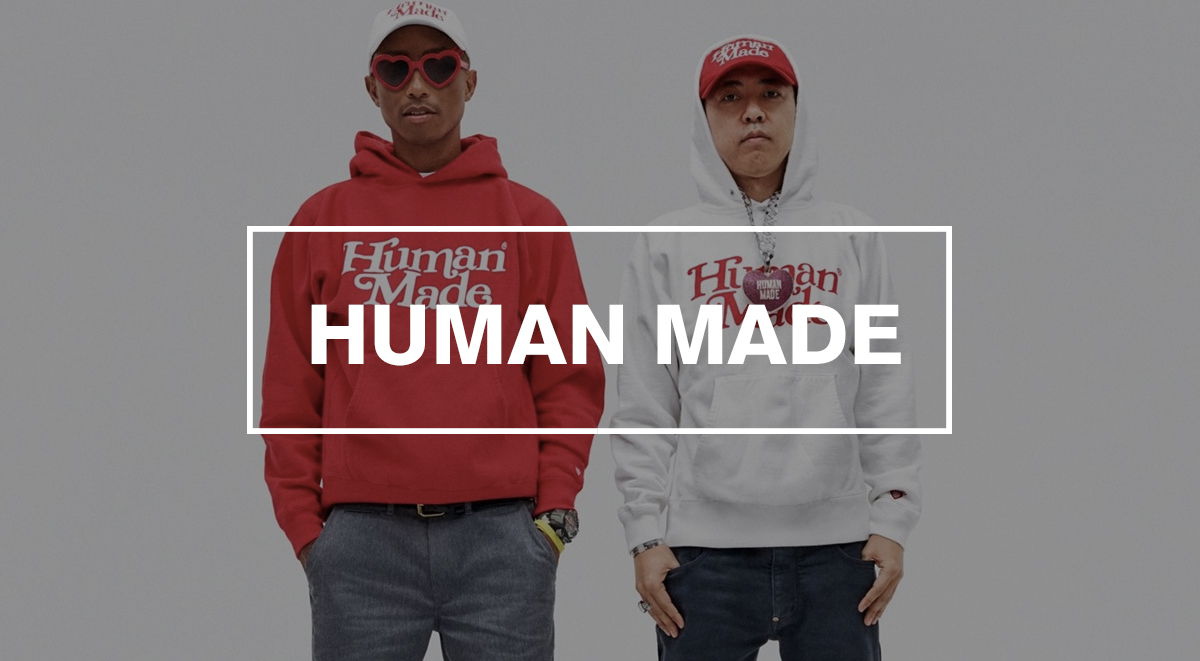
Like Hiroshi Fujiwara, Nigo is a creative force who never stops. With Human Made, he conjured up a brand in 2010 that is entirely the opposite of his star creation, Bape. Once again, the Japanese fascination with vintage American workwear takes center stage, but for Nigo, it presents a stage of maturity in his life – designing clothes that he would wear that run contrary to Bape’s aesthetic. In a way, Human Made’s collections reflect Nigo’s personal tastes in vintage clothes, which are further accentuated with his creative use of graphics.
Shop now: End Launches | YOOX | StockX | Farfetch
Neighborhood
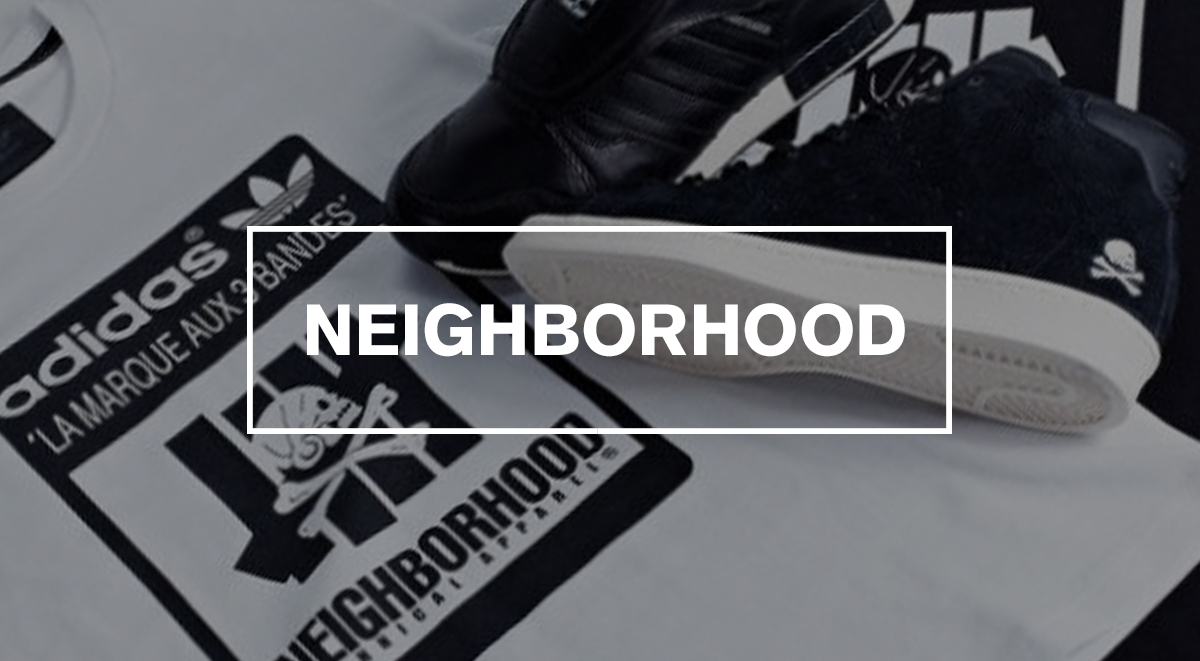
Shinsuke Takizawa’s Neighborhood is among the original set of brands –along with Bape and Wtaps – that led the golden years of the Harajuku streetwear scene in the 90s. Each brand offered different styles of clothing inspired by different subcultures that now make up the streetwear umbrella. For Takizawa, the lifestyle and history of motorcycle culture shaped the process of his designs. But it was also an expression of his own interpretation, which differed from the typical “biker style”. At a time where distressed denim and faded canvas were difficult to manufacture, Neighborhood made them staples in its collections. Now the brand has expanded its offerings – military‚ heritage‚ denim‚ and outdoor – and continues to push boundaries with its designs.
Shop now: End Launches | YOOX | StockX | Farfetch
Undercover
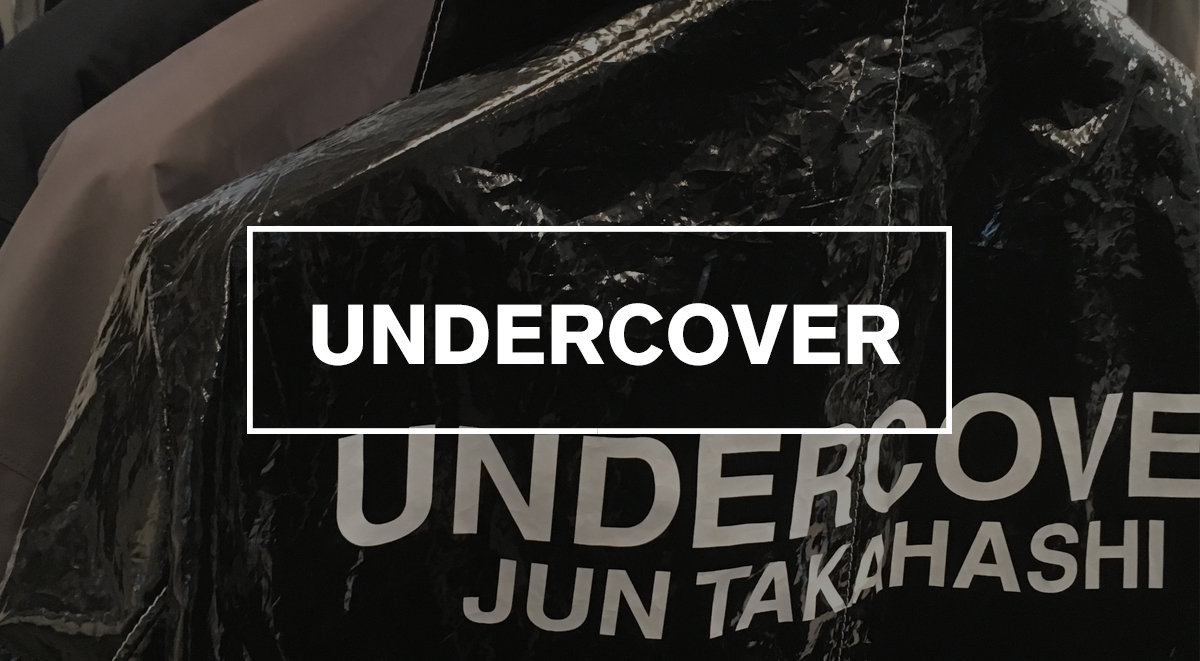
Jun Takahashi founded Undercover in 1990, and together with Bape’s Nigo, set up a store called “Nowhere” to sell both of their clothing lines. While Nigo would go on to leave Bape, Jun Takahashi remains at the heart of Undercover’s operations to this day. Ultimately, the label represents Takahashi’s creative spirit, channeling influences from punk, art, and music into beautifully crafted clothes. It’s high-fashion streetwear that exudes chaos and elegance at the same time. Undercover will always play a key part in the history of Japanese streetwear brands.
Shop now: End Launches | Matchesfashion | YOOX | StockX | Farfetch
Wacko Maria
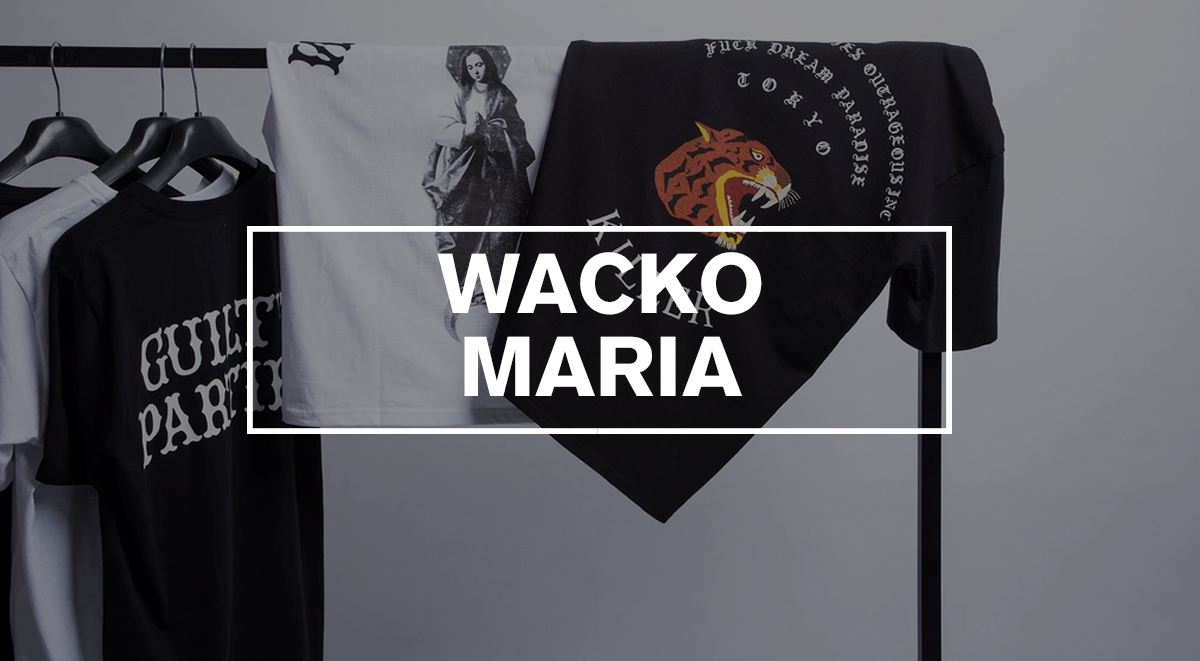
Former professional footballers Nobuhiro Mori and Keiji Ishizuka generated noise when they established their bar in Tokyo, and scored another victory with their subsequent venture into clothing, not least in terms of aesthetics. Wacko Maria, founded in 2005, has truly established itself as a brand to watch, with influences ranging from punk music and Latin American culture, to movies. Despite its signature provocative motifs, the most coveted pieces are those which simply feature text. You’ll immediately know what you’re looking at when you see “Wacko Maria,” “Paradise Tokyo,” and “Guilty Parties” emblazoned on apparel.
Shop now: End Launches | YOOX | StockX | Farfetch
TheSoloist
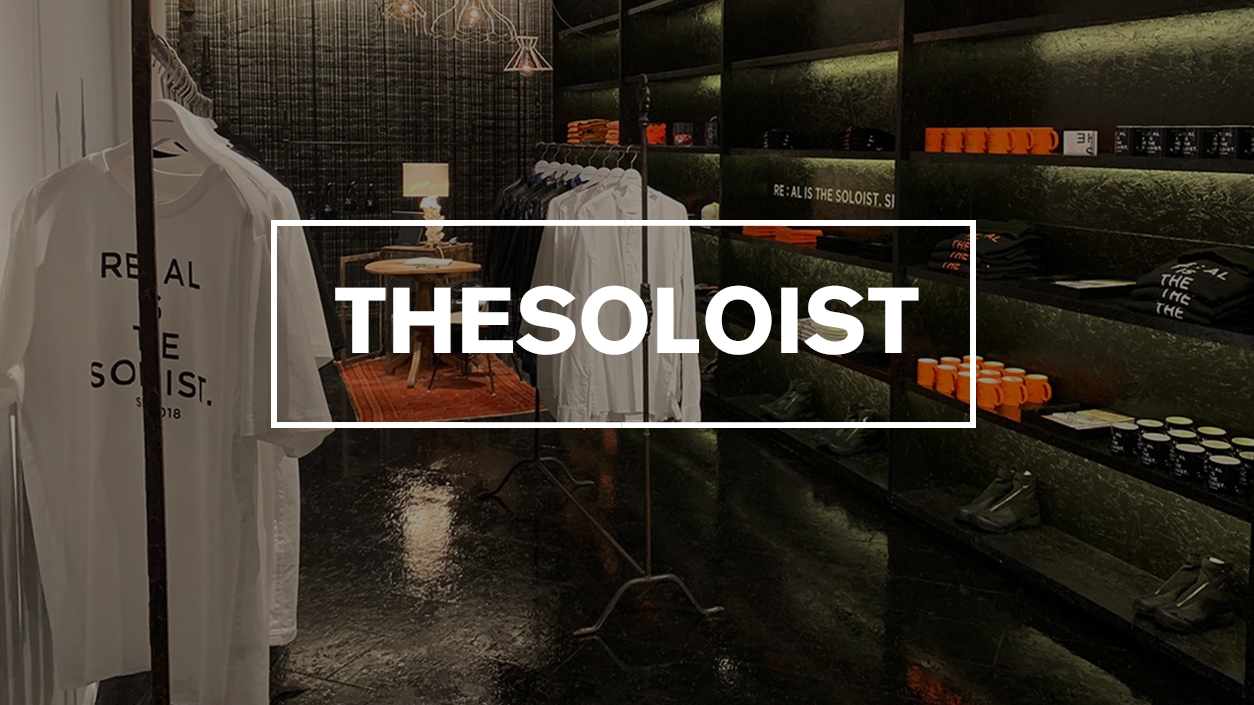
After his departure from avant-garde cult label Number (N)ine, designer Takahiro Miyashita set out to create a new brand that would accurately represent his personal style. Appropriately named Takahiromiyashita TheSoloist, the brand was personalized and represented an update on his work at Number (N)ine. His new solo projects were multilayered collections that utilized muted colors, varied proportions and asymmetrical designs. These consistent design themes are a direct reflection of Miyashita’s love for rock and roll and the Western Americana style. His basics, like jackets and trousers, are immaculately tailored and paired with military-inspired outerwear that offers utilitarian design sensibilities.
Shop now: End Launches | Matchesfashion | YOOX | StockX | Farfetch
Mastermind Japan
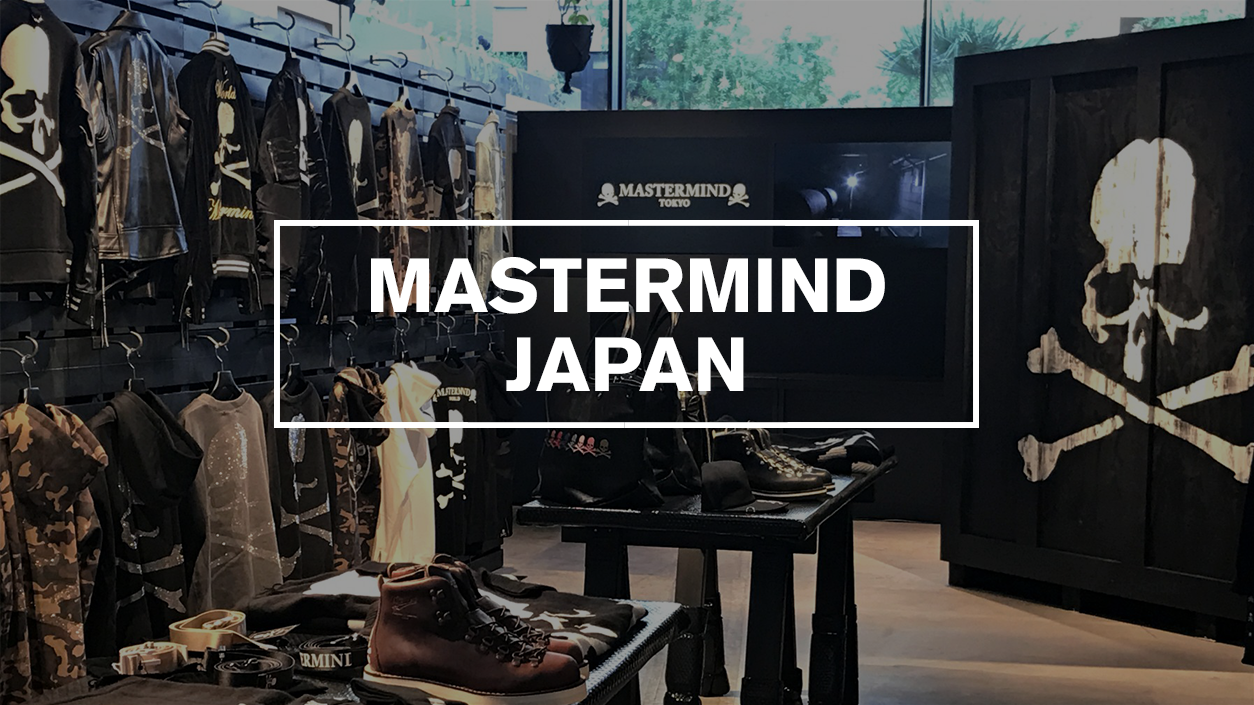
In 1997, Masaaki Homma set up Mastermind Japan without any formal training or education in fashion. Instead, Homma based his new label on his work and time at Yohji Yamamoto, aka Y-3. Mastermind Japan fuses his experience working at the luxury label with punk and goth influences to create high-end street apparel. The brand only utilized finely crafted denim and other material, which made its cross and bone logo synonymous with high-quality streetwear. While Mastermind Japan has not put out a collection since 2013, Homma, itching to get back in the game in 2015, debuted Mastermind A-Girls, Mastermind Homme and Mastermind Femme. In 2016, he revived Mastermind Japan’s classic aesthetic with the establishment of Mastermind World. Though currently inactive on its own, Mastermind Japan continues to regularly collaborate with Nike, Timberland, CDG, Moncler and others.
Shop now: End Launches | YOOX | StockX | Farfetch
White Mountaineering
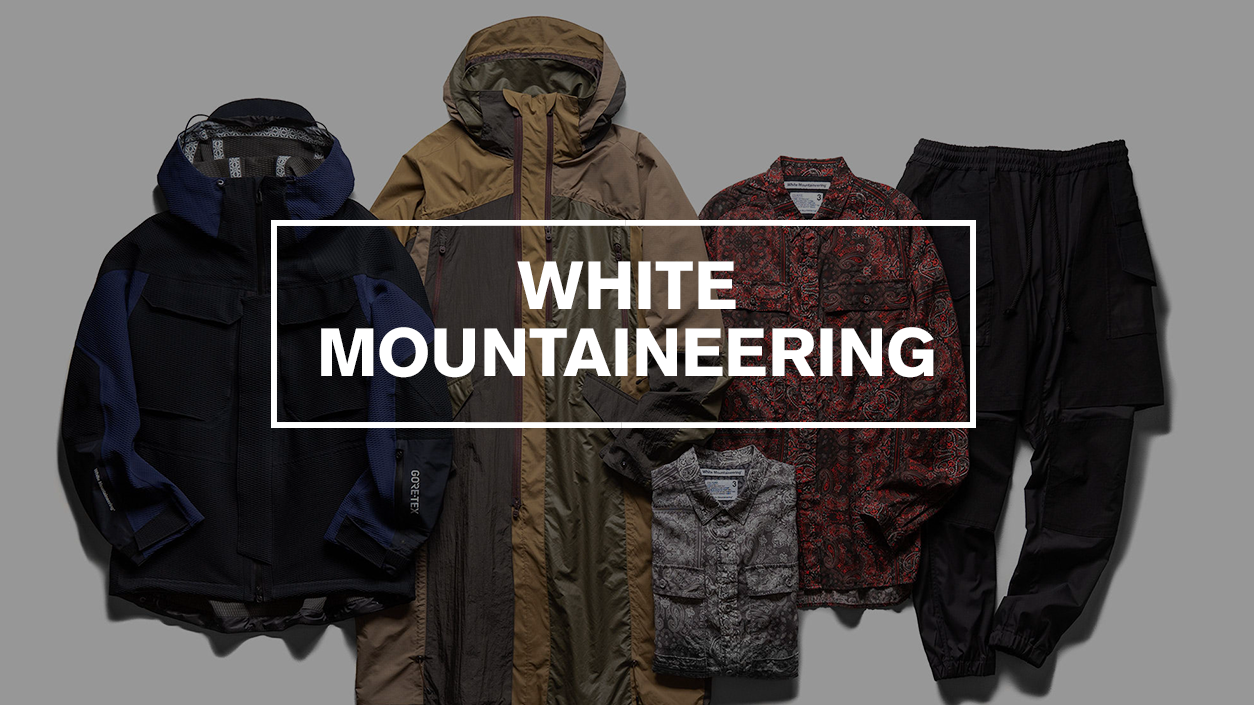
A graduate from Product and Textile Design at Tokyo’s Tama Art University and, later, Junya Watanbe’s protégée, Yosuke Aizawa combined his love for the great outdoors with his extensive skill sets as a fashion designer to create White Mountaineering. This unique fusion blended Americana sensibilities with rugged material choices produced collections that were ready for all-conditions. Aizawa’s presence at the Milan and Paris Pitti Uomo in 2013 drew attention to the brand, and by 2014, White Mountaineering began to secure collaborations with Saucony, Porter, and more recently, Adidas.
Shop now: End Launches | YOOX | StockX | Farfetch
Yohji Yamamoto
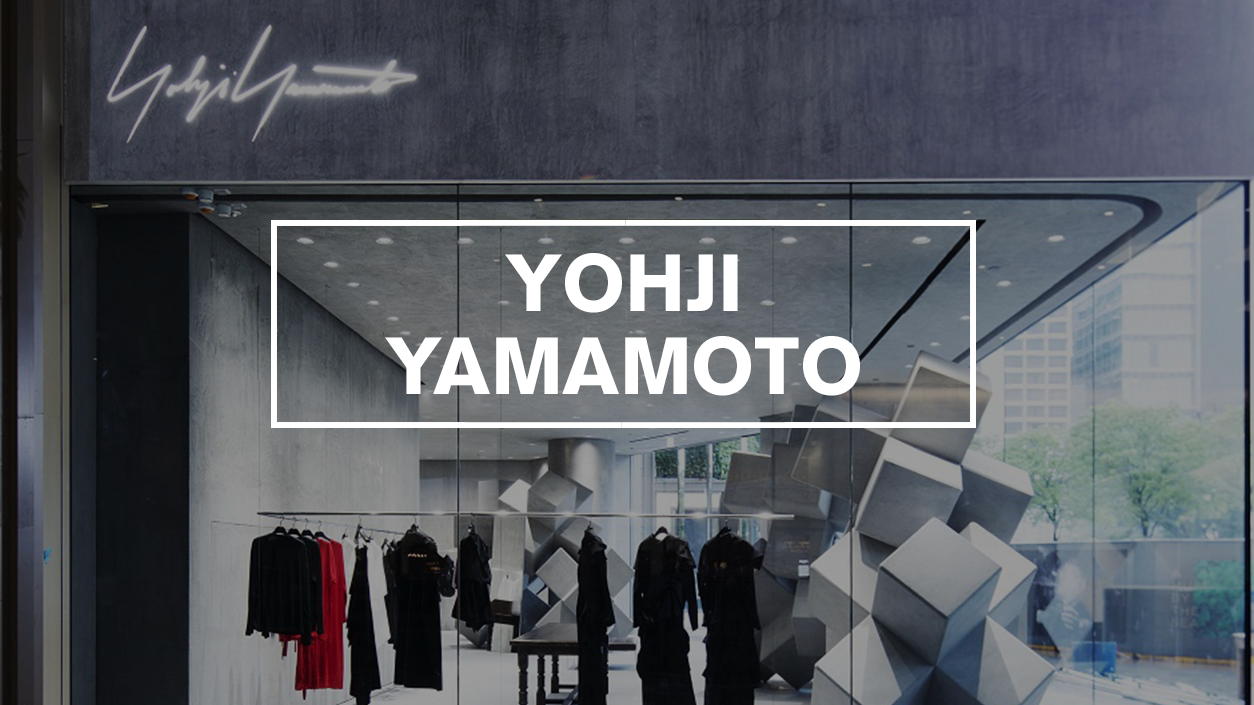
Making a career switch from law to fashion, Yohji Yamamoto had a humble beginning as a sewing assistant at his mother’s shop. Eventually, she recommended him to join the renowned Bunka Fashion College. Post-graduation, he set up a ready-to-wear fashion line before expanding his business to Paris in the 1980s. Yamamoto’s avant-garde, drapery design would go on to gain international recognition and his two main lines, Yohji Yamamoto and Y’s, achieved sales totaling US$100 million in 2007. Soon after, he began working on collaborations with Adidas (Y-3), Hermés and Mikimoto.
Shop now: End Launches (Y-3) | Matchesfashion (Y-3) | YOOX (Yohji Yamamoto) | YOOX (Y-3)| StockX (Yohji Yamamoto) | StockX (Y-3)| Farfetch (Yohji Yamamoto) | Farfetch (Y-3)
Evisu
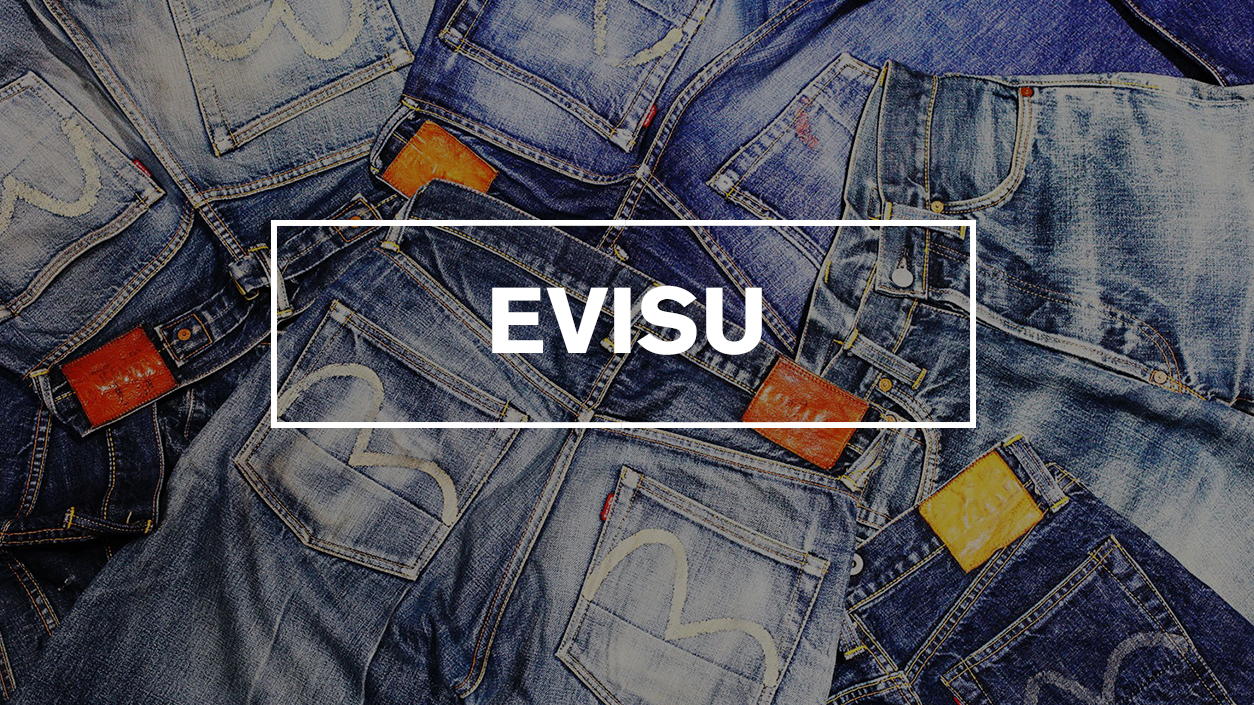
Hidehiko Yamane founded Evisu in 1991. The brand gets its name from Ebisu, the god of fortune and fishermen but more importantly, the common mispronunciation by the Japanese of “Levi’s”. Evisu would go on to be the first of the Osaka 5, a collective of five Japanese denim brands that was formed in the prefecture, to break into the American market. Yamane’s focus on high-quality denim and manufacturing processes defined the concept of “Japanese Denim” and gave the category its luxury status. In the early days, only 14 pairs were made a day and each pair had their gull motif pockets painted on — an ode to Levi’s and a mark of their unparalleled craftsmanship.
Uniqlo
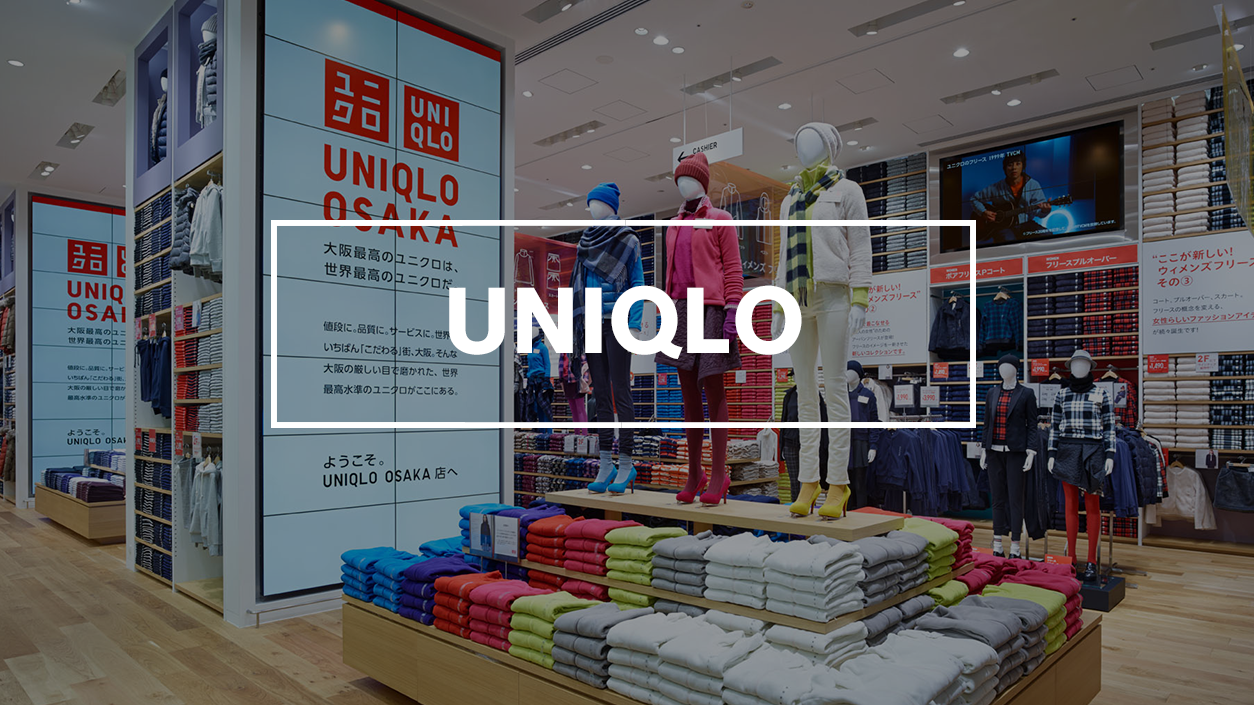
Uniqlo was launched in 1984 by Ogoro Shoji in Hiroshima as “Unique Clothing Warehouse”. Due to constant mispronunciations, the company changed its name to Uniqlo. Within 10 years of its launch, Uniqlo expanded to over 100 stores within Japan. Its budget-friendly, all-season range appealed to price-sensitive Japanese consumers who were recovering from the recent recession. In 2002, Uniqlo refreshed its image by initiating collaborations with fashion magazines, celebrities and artists. Since then, Uniqlo has maintained an ever-evolving apparel range that caters to the changing taste of the average consumer. This led to Uniqlo inadvertently creating one of the most sought-after streetwear collaborations — the riot-inducing Kaws x Uniqlo collaboration. Uniqlo’s first store outside of Japan was established in London in 2001, and since then has got 2,250 stores all over the world.
Shop now: Uniqlo
Asics
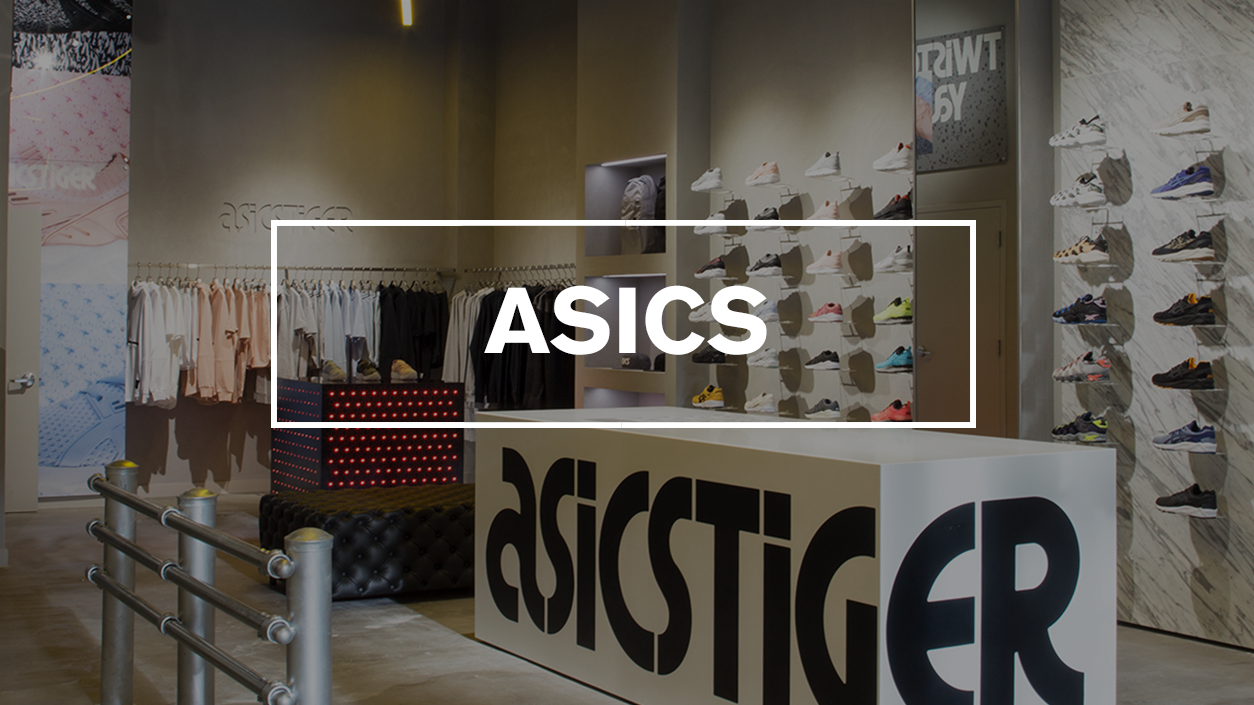
Formed in 1950 and named after its founder, Kihachiro Onitsuka, Asics was originally known as Onitsuka Company Limited. The footwear brand focused on creating basketball shoes around the ethos “sound mind, sound body”, to support the development of children through a healthy lifestyle. It rebranded itself as Onitsuka Tiger at the 1968 Mexico Olympics and once more as Asics in 1977, when it merged with two other companies. In 1987, Asics would debut their Gel-Lyte technology, which has become their flagship technology used widely across their range of footwear. Its Gel-Lyte runners would eventually become cult classics and, with a knack for partnering with up-and-coming brands and designers, Asics would create some of the most sought-after sneaker collaborations including the 2007 Ronnie Fieg x David Z x Asics Gel Lyte III and Patta x Gel Lyte III.
Shop now: End Launches | Matchesfashion | YOOX | StockX | Farfetch
Suicoke
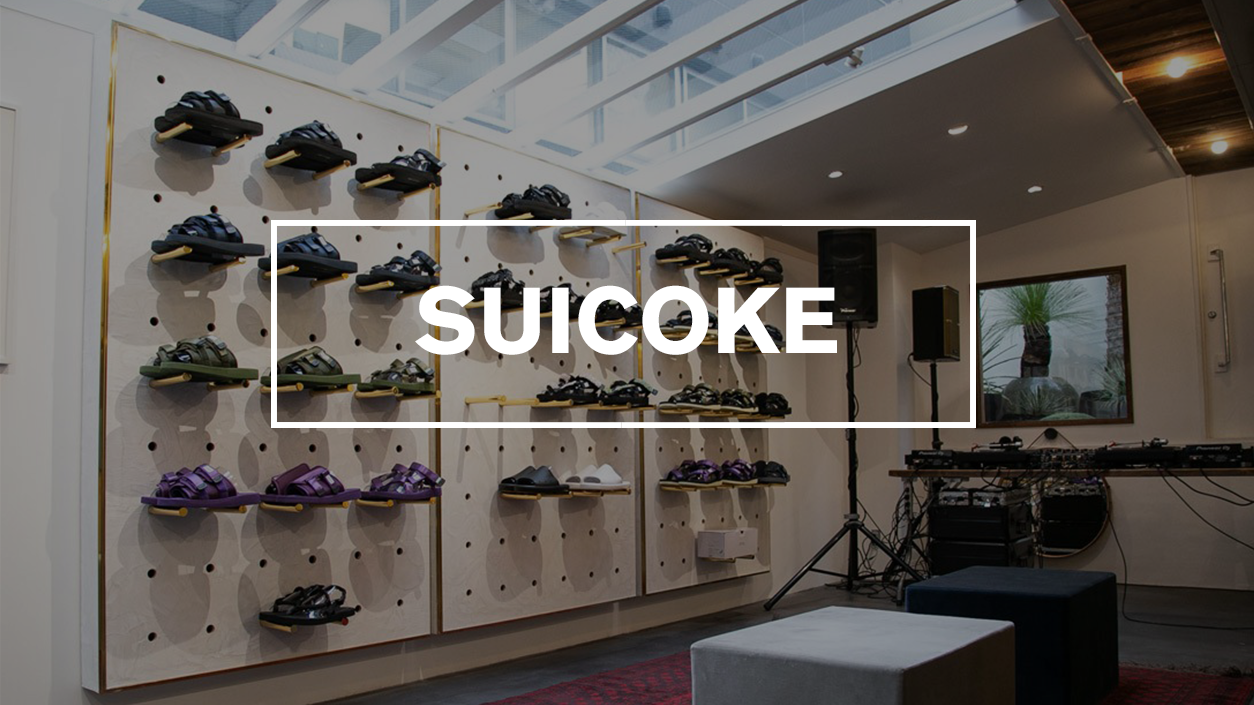
Anonymous and mysterious, Suicoke is a faceless brand that wants all chatter about the brand to be focused on their footwear. Formed in 2006, the brand originally focused on making small accessories before collaborating with Vibram to create their iconic molded footbed sandals. Their constantly evolving designs and high-quality construction have led to international collaborations with brands like Stussy, Braindead, Mastermind Japan and John Elliot. Worn with or without socks, the appeal of Suicoke is growing with no signs of slowing down.
Shop now: End Launches | Matchesfashion | YOOX | StockX | Farfetch
Sacai
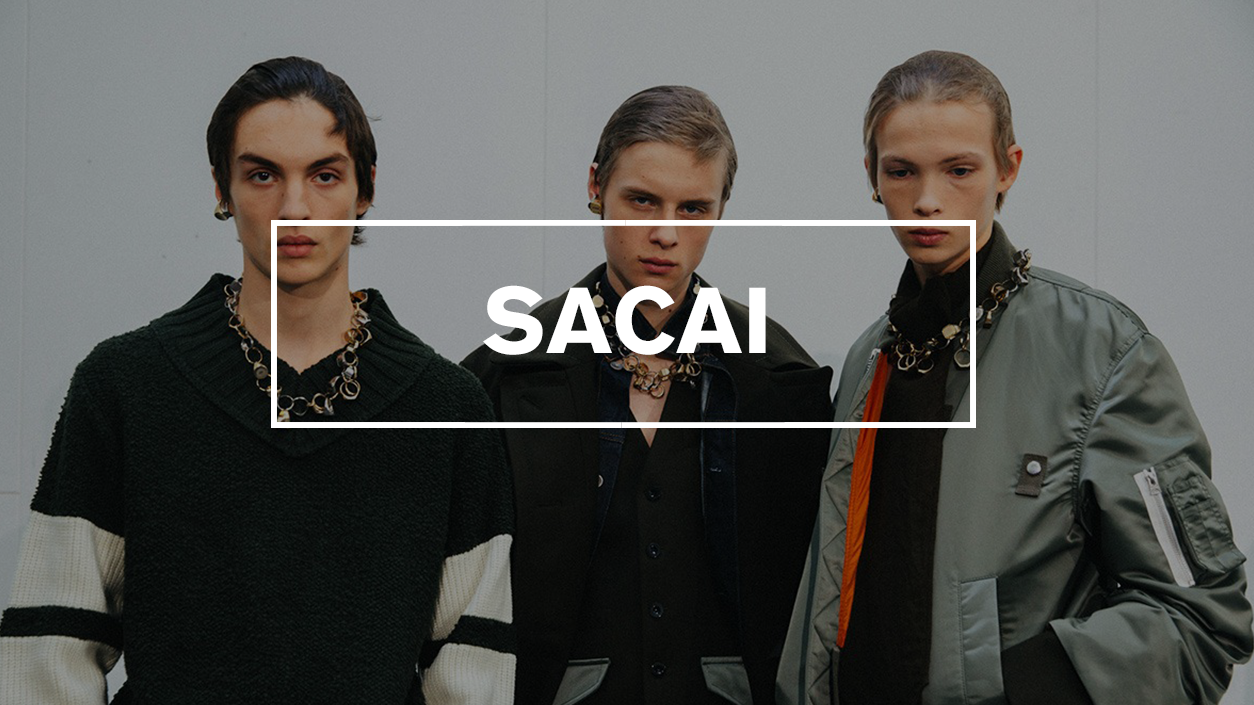
After eight years at Comme des Garçons as a patternmaker under Rei Kawakubo and Junya Watanabe, and needing a creative outlet after motherhood, Chitose Abe set up Sacai in 1999. The brand was originally a one-woman show, selling practical knitwear created by Abe in her home. It would take three years for her to hire the first employee and another decade to gain international attention. In 2015, Sacai and Nike teamed up to apply her deconstructed design language to their fitness apparel, signaling Abe’s entry into the streetwear scene. Sneakerheads and high fashion lovers alike dote on her innate ability to conceal hidden elements within her apparel and sneakers. This is especially evident in the Sacai x Nike LDwaffle, which unveiled her signature double-Swoosh.
Shop now: End Launches | YOOX | StockX | Farfetch
Hender Scheme
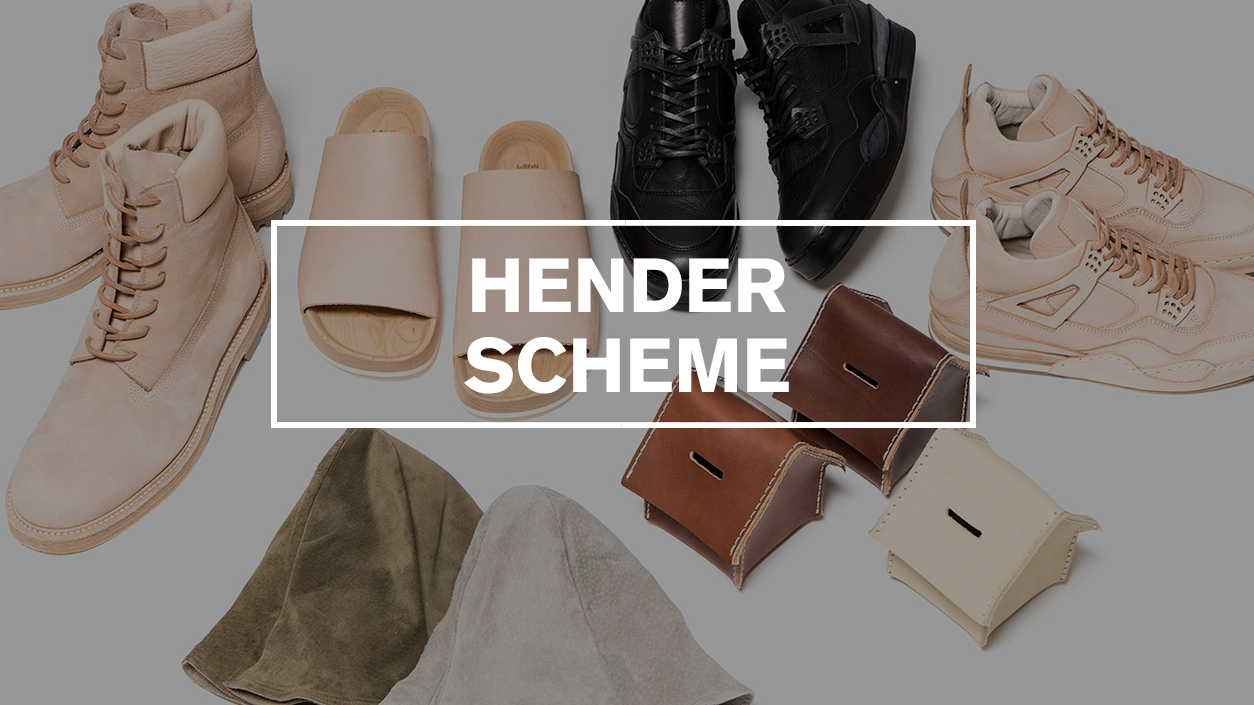
Ryo Kashiwazaki founded Hender Scheme in Tokyo in 2010 with the goal of balancing modern design with traditional leather crafts. The label has since gained international acclaim for its “Homage Line” of footwear. The line consists of classic sneakers Kashiwazaki has reconstructed with traditional shoe-making techniques. His creations focus on craftsmanship and accuracy rather than the necessity to retell its story. This focus on details has created jaw-dropping leather versions of Air Jordan 4s, Reebok Instapump Furys and Air Force 1s.
Shop now: End Launches | YOOX | StockX | Farfetch
Cav Empt
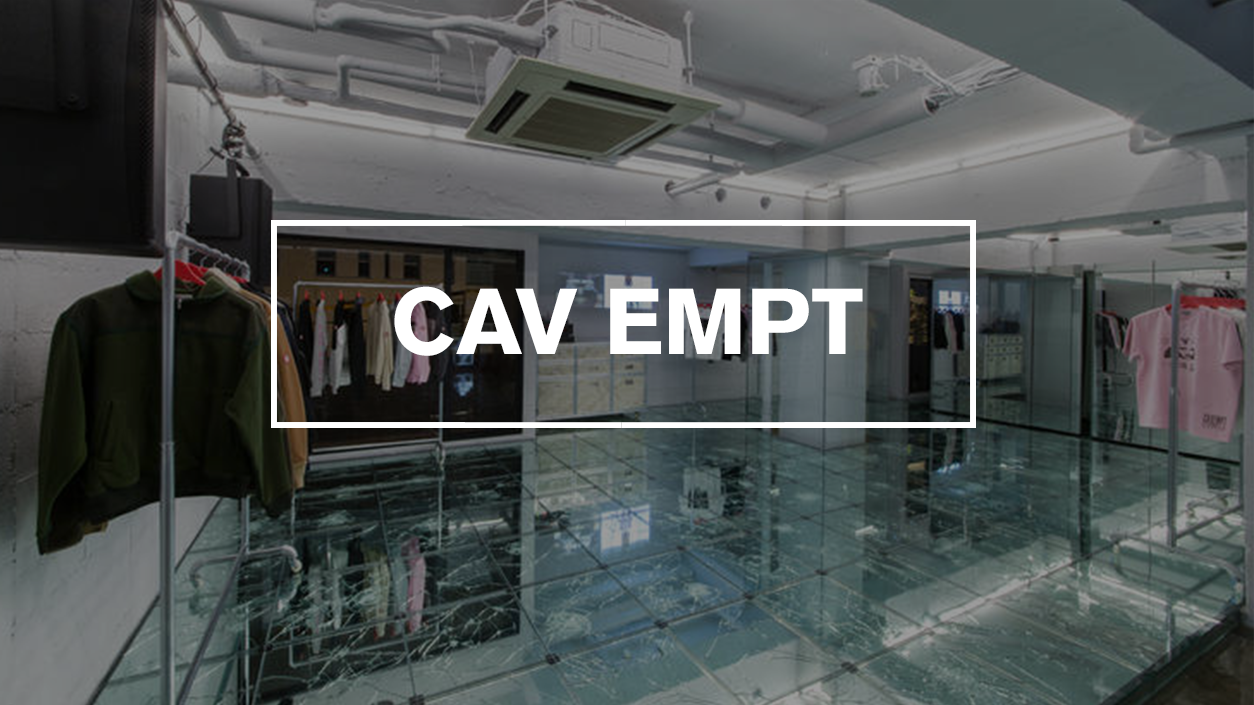
Cav Empt was formed by creative director Feltwell and designer SK8THING after experiencing a moment of inspiration during the 2010 earthquake and tsunami that hit Japan. Their long-term stint at Bape was coming to an end and seeing the disaster strike Japan left them feeling like “you end up in the same place…but you see it immediately very differently,” as Feltwell explained. Choosing to make the most of their departure from Bape, the duo created a brand they knew they would enjoy working at. Cav Empt’s eclectic and colorful collections, which often have a haphazard appearance, are part of the brand’s carefree ethos. Cav Empt’s designers operate without fixed plans and reference everything around them, finding joy as they create. Though commercial success isn’t their main focus, they have since launched close to 100 stores worldwide.
Shop now: End Launches | YOOX | StockX
Kapital
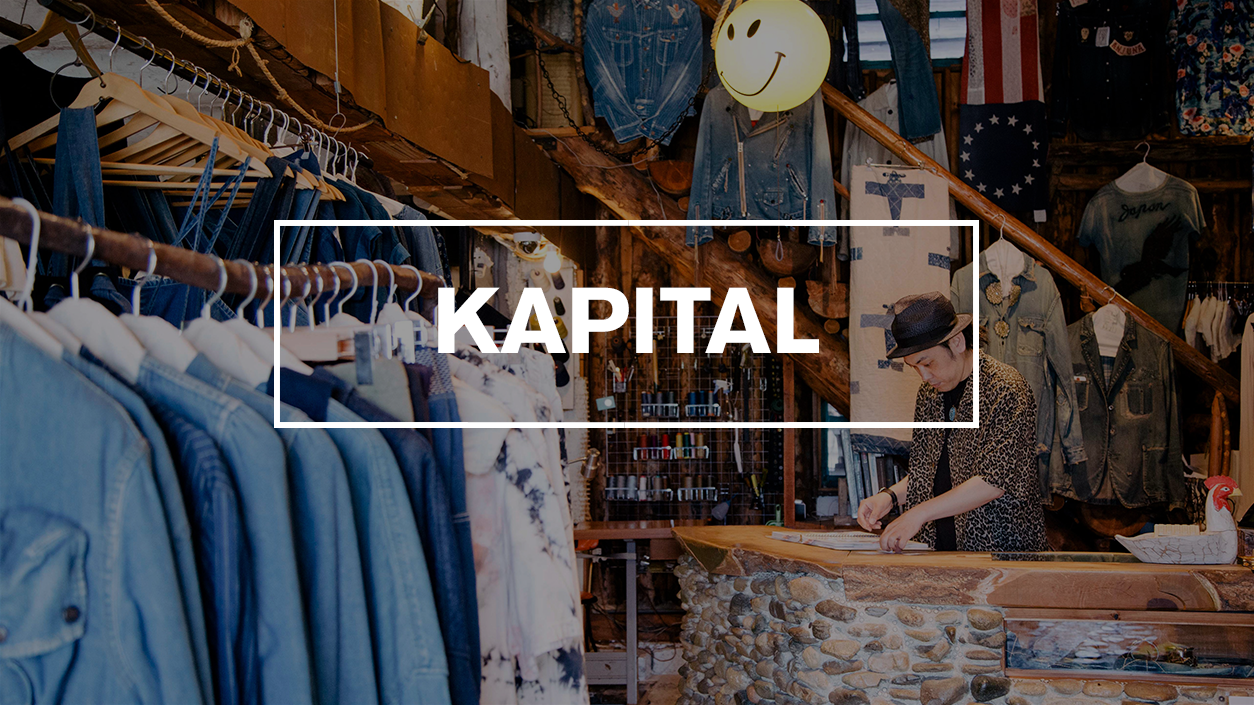
A brand synonymous with denim, Kapital defies the mold set within fashion which often sees denim jeans as an essential rather than your statement piece. Set up by Toshikiyo Hirata, Kapital is a venture that stems from Hirata’s time in America and his deep appreciation for denim. Upon his return in 1984, he would set up a factory to produce his own denim and set up a vintage store in Kojima. Today, Kapital is one of the most respected labels that makes Japanese heritage fashion. It mixes traditional Japanese construction and dying techniques with avant-garde designs which have produced some of the most desirable denim clothing and accessories in the world.
Shop now: Farfetch
Facetasm
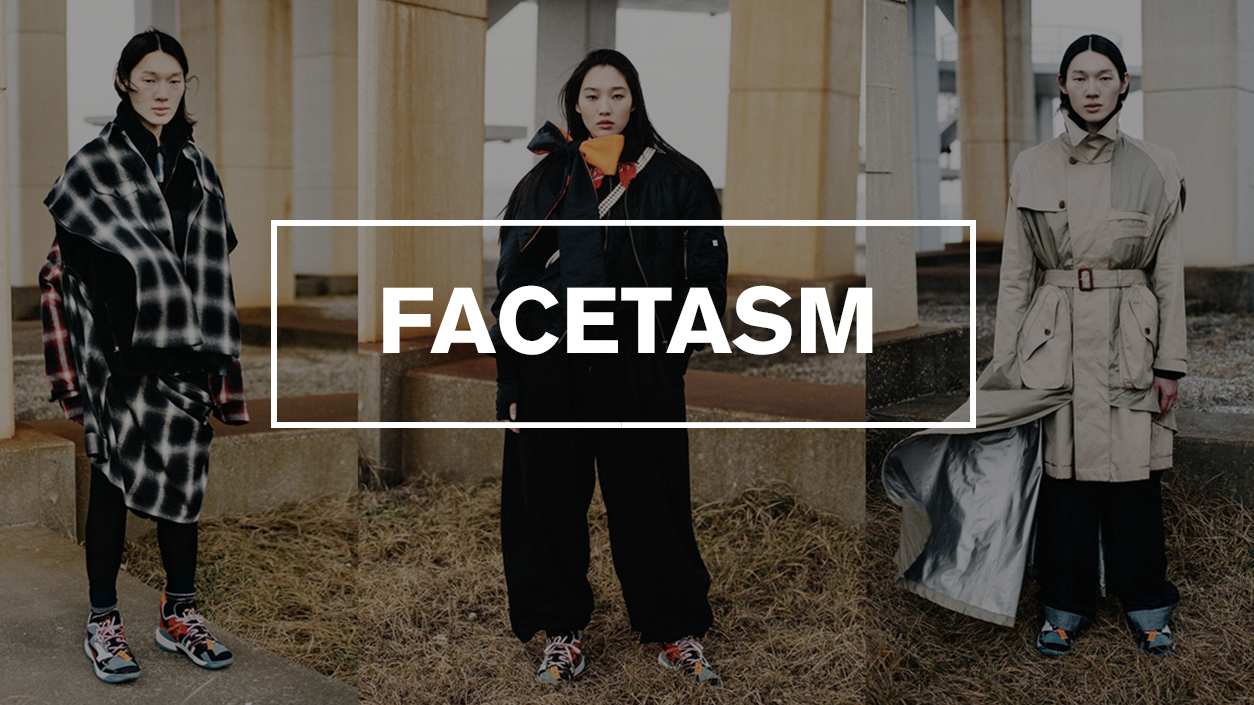
Hiroshima Ochiai formed Facetasm in 2007 upon graduation from Bunka Fashion College and has done stints at both Undercover and Comme des Garçons. Though his collections and releases have largely flown under the radar, Facetasm has been able to slowly grow a fan base in the fashion industry and among high fashion-loving youths. Hiroshima Ochiai’s eccentric vision results in avant-garde collections that defy norms and can be experienced from multiple angles, each one offering a different look at a singular outfit. Ochiai’s quest for evolution and continuous product development has made Facetasm a label to keep on our radar.
Shop now: YOOX | StockX | Farfetch
So if you’re tired of your look, then consider checking out some of the Japanese brands on this list to find the one that best expresses your style and individuality. We have no doubt that at least one of these labels will take your fancy.
Looking to get started in streetwear culture? You might find this streetwear sizing guide for Asians useful too.
Which one of these brands are you looking to dive into next? Did we miss out on any of your favorites? Let us know in the comments below.
Featured image: Wonderwall
Read more:
Don’t want to leave the house? Here are the best online stores to shop streetwear
TAGS
Tags:


